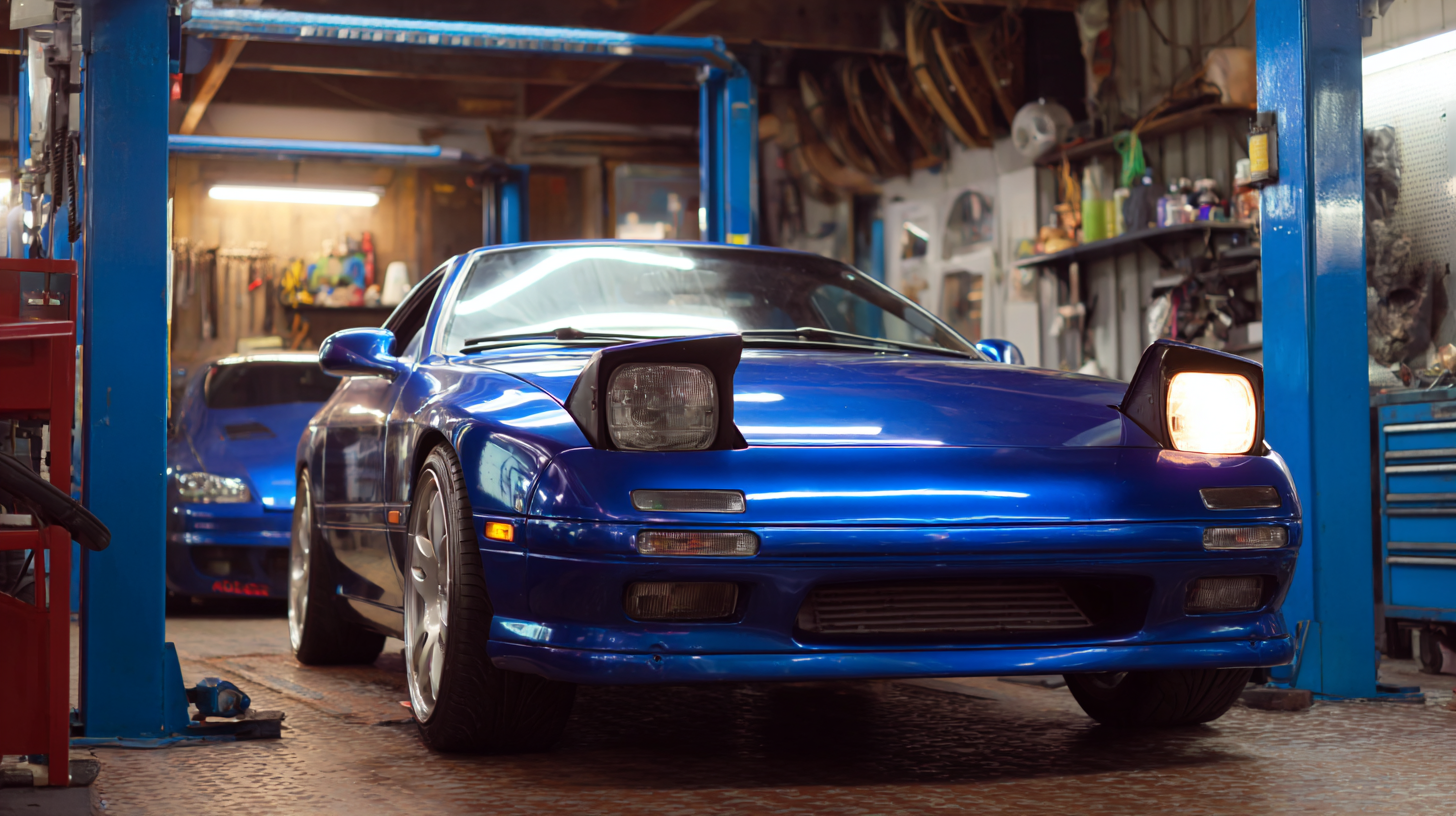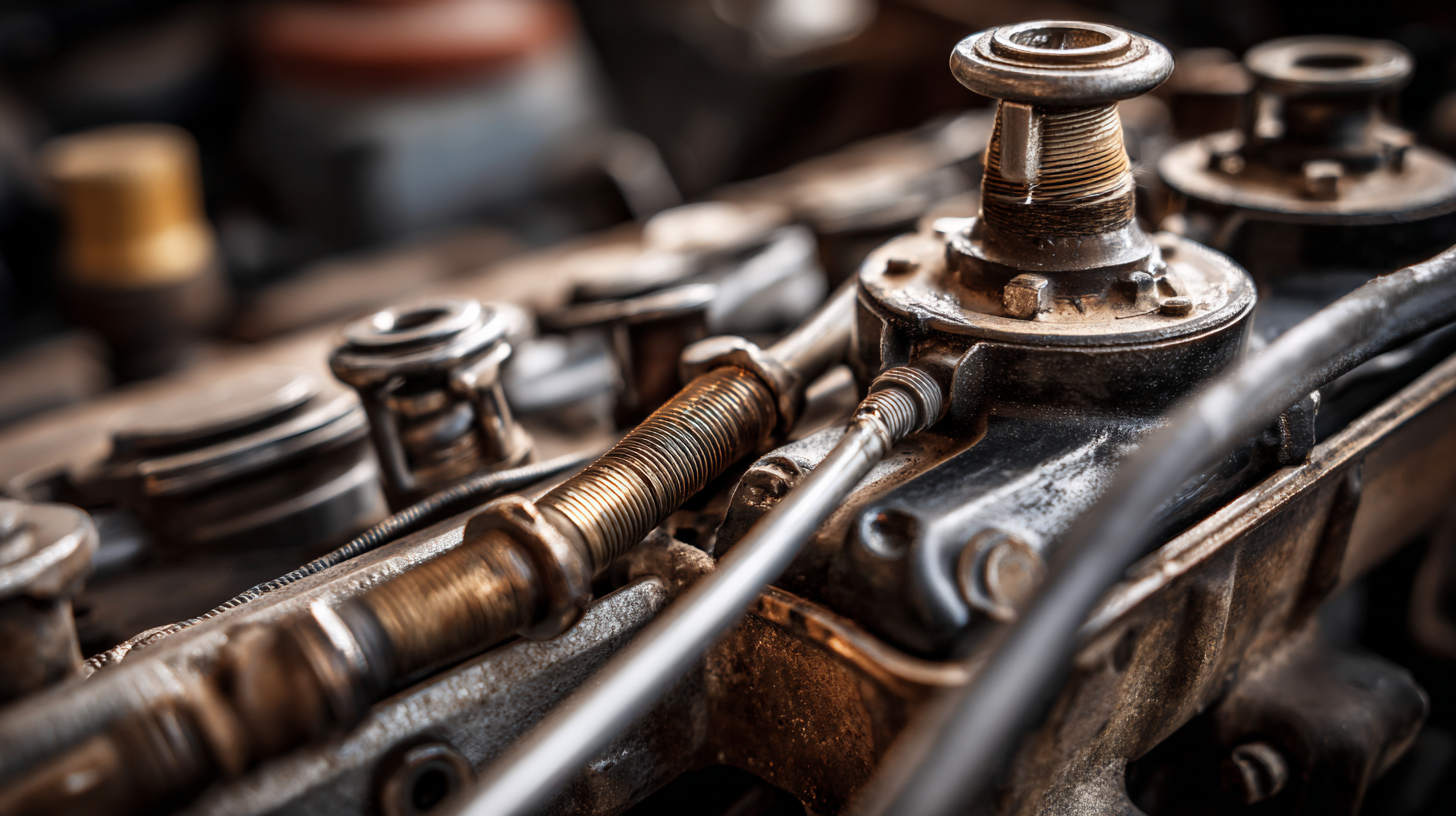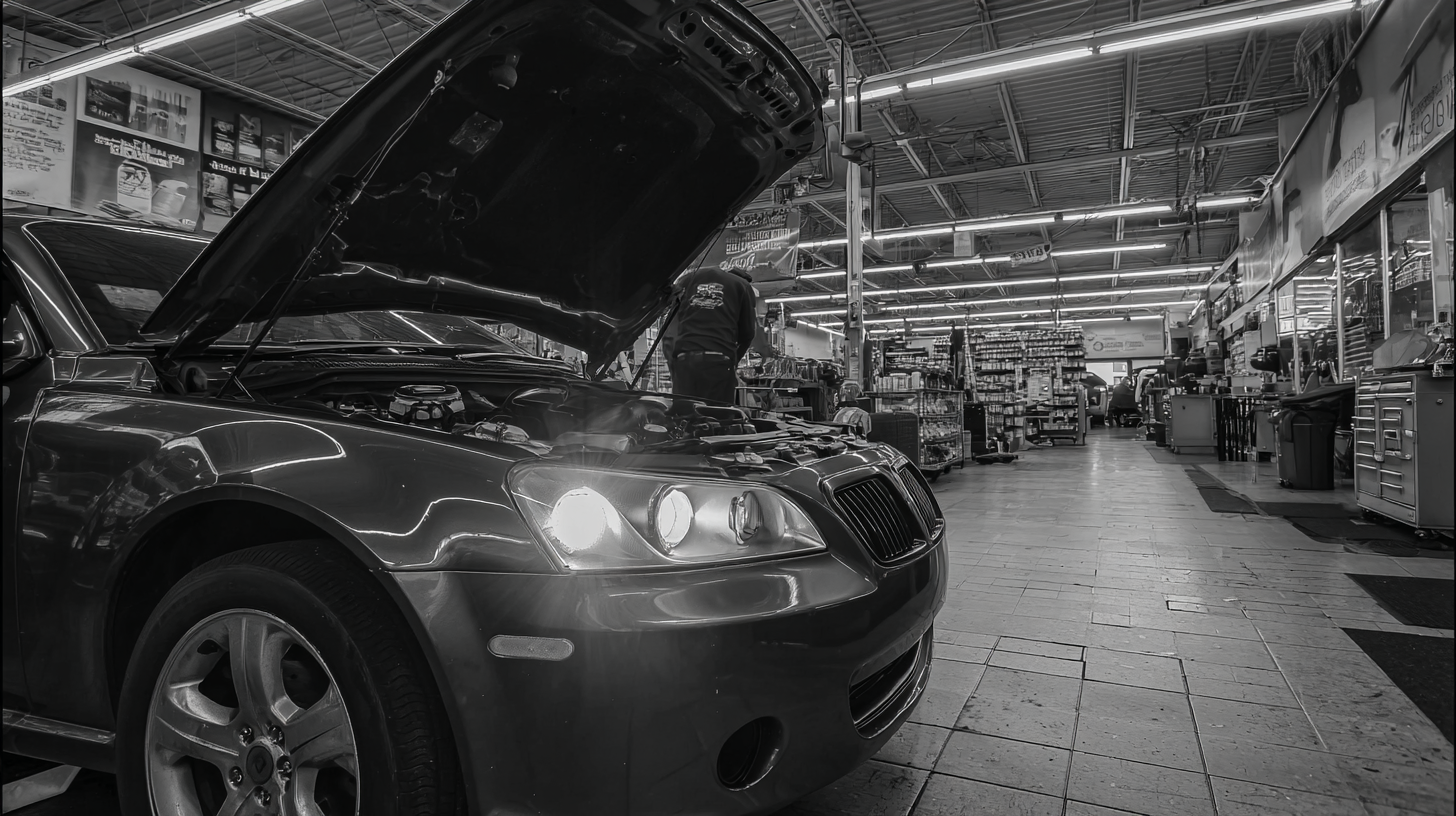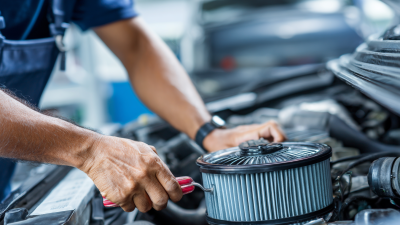Auto Repair Shop In Plainfield, IL
Essential Guide to Auto Repair Help for DIY Enthusiasts and Beginners
In a world where DIY culture continues to flourish, the importance of understanding auto repair cannot be overstated. A recent report by the Automotive Aftermarket Industry Association (AAIA) reveals that more than 70% of vehicle owners prefer tackling maintenance and minor repairs themselves to save costs. This trend highlights a growing need for accessible auto repair help, especially among beginners who may feel overwhelmed by the intricacies of automotive technology.

With vehicles becoming increasingly complex, educational resources that simplify repair processes are essential. By equipping DIY enthusiasts with the right knowledge and tools, they can not only enhance their skills but also foster a sense of empowerment and sustainability. This essential guide aims to bridge that knowledge gap, providing valuable insights and practical tips for those venturing into the realm of auto repair.
Understanding Your Vehicle: A Beginner’s Overview of Key Components
Understanding the key components of your vehicle is essential for any DIY enthusiast or beginner. From the engine to the transmission, each part plays a critical role in ensuring your car runs smoothly. When tackling any auto repair project, it's vital to familiarize yourself with how these components interact and their function in the overall performance of your vehicle. For instance, understanding RPM (revolutions per minute) is crucial as it affects both horsepower and torque production, thus directly influencing how your vehicle performs.
Tips: Start by reading your vehicle's manual to grasp the basics of each component and its maintenance schedule. Additionally, consider keeping a journal of your repairs and observations as it will help you learn from your experiences and identify recurring issues more effectively.
Another crucial aspect to consider is the integration of modern technologies in vehicles, such as driver assistance technologies. Understanding these systems not only enhances your driving experience but also empowers you during repairs. Familiarizing yourself with features such as adaptive cruise control or backup cameras can provide insight into troubleshooting related problems.
Tips: Watch tutorial videos to see how specific components work and the best practices for repairing them. Engaging with online forums or communities can also provide valuable resources and support as you navigate your journey in auto repair.
Essential Tools Every DIY Mechanic Should Have in Their Garage
For DIY enthusiasts and beginners venturing into auto repair, having the right tools is crucial for successful projects. Every DIY mechanic should start their garage collection with a basic toolbox that includes essential hand tools. A set of wrenches, both standard and metric, is fundamental for loosening and tightening bolts. Additionally, pliers, screwdrivers, and a sturdy ratchet set will address a variety of tasks, from general maintenance to more complex repairs.
In addition to hand tools, power tools can greatly enhance efficiency and ease the workload. A cordless drill is invaluable for quick tasks, allowing you to fasten or remove screws and bolts without the hassle of cords. An air compressor can also be beneficial, particularly for inflating tires or powering pneumatic tools. Lastly, investing in a reliable jack and jack stands will ensure that your vehicle is safely elevated when working underneath, making it easier and safer to perform maintenance or repair tasks. By equipping your garage with these essential tools, you’re setting a solid foundation for your DIY automotive endeavors.
Essential Tools Every DIY Mechanic Should Have in Their Garage
Step-by-Step Guide: How to Perform Common Auto Repairs
Performing common auto repairs can empower DIY enthusiasts and beginners alike, enhancing their skills and confidence. A step-by-step approach is essential, starting with simple tasks like changing oil or replacing a tire. According to the Automotive Service Association, approximately 75% of vehicle owners prefer tackling minor repairs themselves, which not only saves costs but also fosters a deeper understanding of their vehicles.
**Tips:** Start with the right tools. A basic toolkit should include wrenches, screwdrivers, pliers, and a jack. Familiarizing yourself with these tools can significantly simplify the work process. Additionally, keep a repair manual specific to your vehicle handy; it turns out that 63% of DIYers find manuals indispensable for navigating complex repairs.
For more complex tasks such as brake pad replacements or spark plug changes, refer to detailed online tutorials or instructional videos. Research from the National Institute for Automotive Service Excellence suggests that DIY repairs can save an average of $100 to $200 in labor costs. Being methodical and patient is key; take the time to understand each step and seek assistance from automotive forums when needed.

Safety First: Best Practices for DIY Auto Repair Enthusiasts
When engaging in DIY auto repair, safety should always be the top priority. Before starting any project, it is crucial to equip yourself with the right safety gear, including gloves, goggles, and durable clothing. This ensures protection against harmful substances, sharp edges, and hot surfaces.
Furthermore, working in a well-ventilated area can help reduce exposure to toxic fumes released during repairs, particularly when dealing with fluids like oil or gasoline.
Another essential practice is to never work under an unsupported vehicle. Always use jack stands to secure the car after lifting it with a jack. This precaution prevents accidents that could result from a vehicle slipping or falling. Additionally, familiarize yourself with the tools you plan to use, understanding their functions to avoid misuse. Keeping a clean and organized workspace helps reduce clutter, which can lead to accidents and ensures that you can find essential tools easily when needed. By adhering to these safety practices, DIY enthusiasts can enjoy a rewarding, yet safe, auto repair experience.
Where to Find Reliable Resources and Support for DIY Car Maintenance
When it comes to DIY car maintenance, finding reliable resources and support is crucial for both beginners and seasoned enthusiasts. According to a 2022 survey by the Automotive Aftermarket Industry Association (AAIA), approximately 60% of car owners prefer to perform basic repairs themselves, with many citing cost savings and increased satisfaction as key motivators. Online platforms, such as car forums and YouTube channels, have become invaluable for sharing knowledge and techniques, allowing DIYers to learn from each other's experiences.
**Tips for Finding Reliable Resources:**
- **Utilize Reputable Websites:** Websites such as Edmunds and AutoZone provide extensive articles, videos, and tutorials on various car repairs. Trusted resources ensure that you’re accessing accurate and safe information.
- **Engage with Local Mechanic Communities:** Joining local car clubs or online community groups can provide not only a wealth of knowledge but also personal mentoring from experienced mechanics. This interaction can facilitate hands-on learning and foster a supportive environment.
By leveraging these resources, DIY enthusiasts can enhance their skills and confidence, turning routine car maintenance into an achievable and rewarding endeavor.

Contact Us
Service Area
Plainfield, 60585, 60544, 60586, Naperville, 60564, Bolingbrook, 60490, 60440, Romeoville, 60446, Will, Kendall, DuPage, Counties. Our auto repair shop in Plainfield, IL, has been serving the local area plus all surrounding Chicagoland since 1978.
Specialties
• Computer Diagnostic • Brake Shop • Engine Replacement • Transmission Rebuild • Clutch Replacement • Differential Rebuild • Suspension Shop • Steering • Shocks & Struts • Heating & Cooling • Electrical • Exhaust Shop • Catalytic Converter Replacement • Alignment • Domestic & Foreign Vehicle Service • Auto Repair In Plainfield, IL • Auto Repair Shops Near Me • Towing Service Near Me


